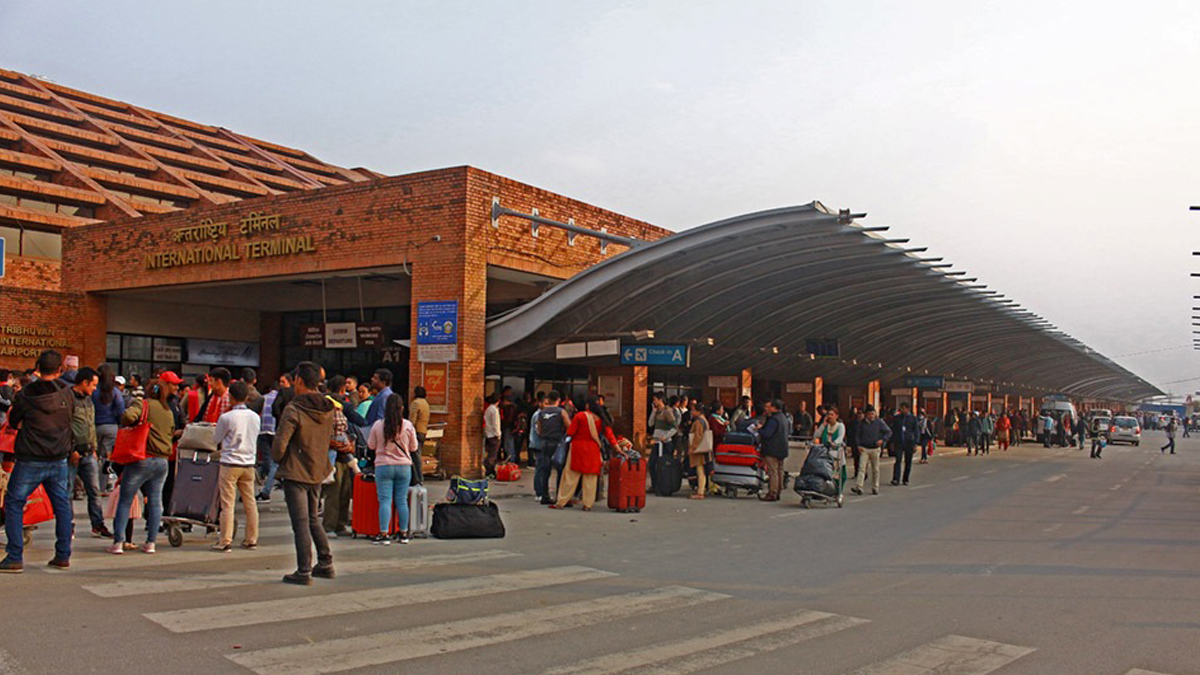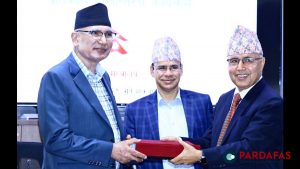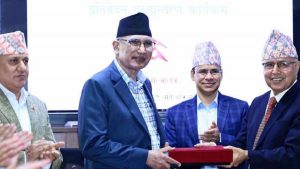
Beyond Borders: A Comprehensive Look at Nepal’s Foreign Employment Landscape in 2023

The Department of Foreign Employment has disclosed that a staggering 700,000 Nepali citizens embarked on journeys for foreign employment in the year 2023, marking an all-time high in the history of the nation. This influx of Nepali laborers seeking opportunities abroad unfolded across 92 countries, utilizing both institutional and individual labor permits, thereby underscoring the robust desire for international employment among the nation’s populace.
Unveiling the Scale: 700,000 Nepalis Venture Abroad
The scale of this migration wave is unprecedented, with 700,000 individuals opting to explore foreign job markets. This surge represents a significant leap from previous years, prompting a closer examination of the factors fueling this mass exodus. It is essential to analyze the implications of such a monumental shift on the national economy, social fabric, and, most importantly, the lives of those who undertake this arduous journey in search of better prospects.
The Drivers Behind the Exodus
Various factors contribute to the growing trend of Nepali youths seeking employment opportunities overseas. Economic considerations, lack of job opportunities domestically, and the aspiration for a better standard of living are among the primary motivators. Understanding the root causes is imperative to formulate effective policies that balance the aspirations of the youth with the nation’s broader economic and social development goals.
Escalating Challenges: Loss of Lives Abroad
As the number of Nepali youths pursuing foreign employment continues to rise, an alarming trend accompanies this wave — an increase in fatalities abroad. Traditionally, accidents and sudden deaths have been the predominant causes of Nepali workers’ demise on foreign soil. However, the year 2023 witnessed a disconcerting shift, with 18 Nepalis losing their lives in war zones, particularly in the conflicts between Israel-Palestine and Russia-Ukraine.
The Toll of Conflict: Nepalis in War Zones
The conflicts in Israel-Palestine and Russia-Ukraine have not only claimed the lives of Nepali workers but have also resulted in five individuals being taken hostage. Shockingly, some Nepali youths are reported to have joined the Russian Army, a revelation that has stirred concerns about the well-being and safety of Nepali citizens involved in military engagements on foreign soil.
Human Tragedy in Israel: Ten Lives Lost
The first week of October 2023 witnessed a tragic event as ten Nepali students pursuing agricultural science lost their lives during an attack by Hamas on Israel. These students, enrolled in an 11-month internship program named ‘Learn and Learn’ at Sudurpashchim University, hailed from various regions of Nepal. Their untimely demise underscores the harsh realities faced by Nepali youths seeking educational and professional opportunities in conflict zones.
Russians Frontlines: Eight Nepali Lives Cut Short
Simultaneously, the Russia-Ukraine conflict claimed the lives of eight Nepalis on the war fronts over the past three months. The Embassy of Nepal in Moscow identified the deceased, emphasizing the challenges faced by Nepalis residing in conflict zones. Reports suggest that over 1,000 Nepalis may have joined the Russian Army, yet the government has not officially released details on the participation of Nepali youths in military service abroad.
Diplomatic Challenges: Nepali Prisoners in Ukraine
The complexity of international conflicts has further manifested in the form of Nepali individuals being held prisoner in Ukraine. The Foreign Ministry acknowledged last month that four Nepalis working for the Russian army are currently held captive by the Ukrainian Army. The individuals — Bibek Khatri of Bardiya, Siddhartha Dhakal of Kavre, Bikas Rai of Morang, and Pratik Pun of Rolpa — are awaiting repatriation, highlighting the diplomatic intricacies surrounding Nepali citizens entangled in global conflicts.
Return and Repatriation Challenges
The challenges faced by Nepali workers abroad are not limited to fatalities and conflict zones. On average, three workers return to Nepal daily due to complications encountered at their job destinations. Additionally, approximately 15 workers return home every day, citing health issues and injuries sustained while working abroad.
Humanitarian Crisis: Loss of Lives and Health Issues
The gravity of the situation becomes even more evident when examining the data compiled by the Foreign Employment Promotion Board Secretariat. In the initial five months of the current fiscal year, 483 Nepalis lost their lives on foreign soil. This alarming statistic sheds light on the multifaceted challenges faced by Nepali workers, ranging from accidents and conflict-related deaths to health issues and injuries sustained while pursuing employment opportunities abroad.
International Dynamics: Nepali Youths in the Russian Army
The revelation that Nepali youths may have joined the Russian Army adds a layer of complexity to the landscape of foreign employment. While the exact number remains elusive, the concerns raised by the potential involvement of Nepali citizens in military service abroad require a thorough examination. The lack of concrete data and official statements on this matter raises questions about the transparency and accountability of the processes surrounding Nepali citizens engaging in foreign military service.
Diplomatic Implications: Government’s Response
Dandu Raj Ghimire, the Director-General of the Department of Foreign Employment, acknowledged the diverse challenges faced in foreign employment throughout 2023. Despite the adversities, Ghimire highlighted that the year witnessed the highest remittances ever brought home and the signing of labor agreements with a record number of countries. Ghimire stated, “We have signed labor agreements with Romania and Germany. Very soon, Nepali workers will be able to work in these European countries.” This diplomatic outreach holds promise for expanding employment opportunities for Nepali citizens in new and diverse regions.
Expert Perspectives: The Way Forward
Employment expert Dr. Ganesh Gurung underscored the need for a more comprehensive and proactive approach to address the challenges associated with foreign employment. Dr. Gurung emphasized that many Nepali youths, having failed to secure employment opportunities domestically, find themselves serving in foreign armies, leading to tragic consequences. Urging the government to prioritize alternatives and enhance security measures for those seeking foreign employment, Dr. Gurung warned that neglecting these aspects could result in even greater problems in the future.
Daily Exodus and Ongoing Challenges
The relentless pursuit of foreign job opportunities is reflected in the latest data compiled by the Department of Foreign Employment, indicating that around 1,700 Nepalis are leaving for foreign job destinations every day. This constant exodus highlights the persistent demand for employment opportunities beyond the country’s borders and underscores the economic and social dynamics driving this massive movement of Nepali citizens.
As Nepal grapples with the complex dynamics of foreign employment, the challenges faced by its citizens abroad underscore the urgent need for comprehensive measures to ensure the safety and well-being of those seeking opportunities overseas. The government’s proactive initiatives, coupled with international cooperation, will play a crucial role in addressing the multifaceted issues surrounding foreign employment in the years to come. The evolving landscape of global employment demands a nuanced and strategic approach to safeguard the interests and lives of Nepali citizens venturing beyond their homeland in pursuit of a better future.
- High-Level Commission Calls for Sweeping Legal and Institutional Reforms to Revive Nepal’s Economy
- High-Level Commission Recommends Investment-Friendly Reforms and Lowering Production Costs
- Fugitive Durga Prasai Arrested in Jhapa, Being Transferred to Kathmandu
- President Paudel Extends Greetings on Mahavir Jayanti












Comments